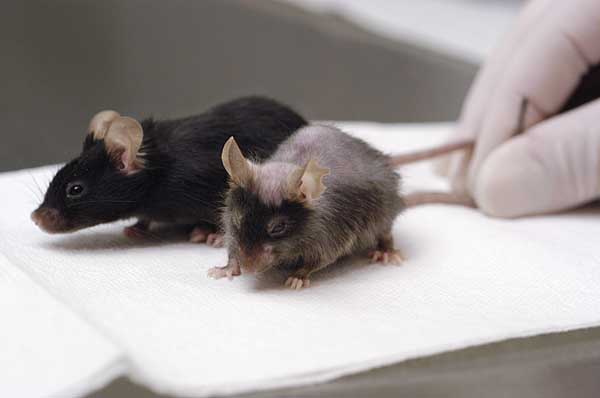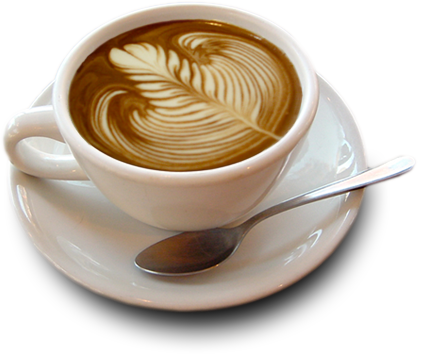The Mediterranean diet and health
The Mediterranean diet has been extolled for its role in lower heart disease rates seen in countries of the Mediterranean. Greece, for instance, has heart disease rates less than half that of places like Scotland or Sweden, despite much higher rates of cigarette smoking. Fasting as part of the Mediterranean diet could be important for its reported health effects.
A recent randomized controlled trial in Spain put a group of people on a Mediterranean diet and followed them for major cardiovascular events: heart attack, stroke, or death from cardiovascular causes. The subjects had no cardiovascular disease at enrollment, so this was a primary prevention trial. Those that adhered to a Mediterranean diet had an approximately 30% lower rate of cardiovascular disease than controls.(1)
In this particular case, the Mediterranean diet was either supplemented with olive oil or mixed nuts. In general (from the Mayo Clinic)
The Mediterranean diet emphasizes:
- Eating primarily plant-based foods, such as fruits and vegetables, whole grains, legumes and nuts
- Replacing butter with healthy fats, such as olive oil
- Using herbs and spices instead of salt to flavor foods
- Limiting red meat to no more than a few times a month
- Eating fish and poultry at least twice a week
- Drinking red wine in moderation (optional)
The concept of the Mediterranean diet has been criticized for being vague; for instance, is pasta part of it? Why is replacing butter with olive oil so important? It can also be seen that the diet is low in processed foods and in sugar, and not much emphasis has been placed on these.
There are also confounding factors, such as more sunshine – resulting in higher vitamin D levels – and social patterns such as stronger family life and community ties.
Fasting as part of the Mediterranean diet
Another confounding factor is religion, specifically in Greece, Cyprus, the Balkans, and parts of the Levant, in which Eastern Orthodox Christianity is the majority religion. Why does that matter? Because Orthodox Christianity prescribes regular fasting, and fasting has been shown to be a very healthy practice, similar to calorie restriction.
And let me tell you, the rules for fasting in Orthodox Christianity are strict, and adherents are expected to follow them. Fasting in some form is prescribed for up to 200 days a year; levels of fasting vary depending on the season and day.
Every Wednesday and Friday throughout the year are fast days, as are the entire seasons of Lent and the Nativity, as well as selected other feast days and weeks. A few weeks are designated as non-fasting weeks, in which the Wednesday and Friday fasts are not observed.
The fasts vary in level of discipline. On Wednesday and Friday fasts, no meat, fish, dairy, wine, or olive oil is permitted; food consist of cooked vegetables, fruit, nuts, bread, and honey. On other fasting days, only one or sometimes two meals are prescribed, and on some others, adherents are encouraged to take no food at all for the entire day. (I’m not an Orthodox Christian, and I find some of the explanations of these rules confusing, so if any Orthodox would like to comment, that could be helpful. It’s also my understanding that many or most Orthodox Christians do indeed follow the prescribed fasting rules.)
So as we can see, on may days of the year, the Orthodox eat a nearly vegan diet, and probably undergo many sessions of what amounts to intermittent fasting. Given the number of fast days, I suspect that average overall calorie intake, spread throughout the year, is lower than it would otherwise be. (Nevertheless, obesity in Greece is on the rise, and this has been attributed to *not* following a Mediterranean diet. No doubt many overweight Greeks don’t follow the fasting rules either.)
Orthodox Christians who fast could be expected to have lower BMI and less heart disease. Fasting could lower their iron levels, and men in Crete in fact have half the body iron stores as do men in the Netherlands. Autophagy, a prime component of longevity, would be increased.
Orthodox fasting in Crete
In doing research for this article, I came across an article that shows that others have thought of the connection between fasting and the health effects of a Mediterranean diet before: “Greek Orthodox fasting rituals: a hidden characteristic of the Mediterranean diet of Crete”.(2) The authors found that dedicated fasters about 320 calories a day less on fast days than did controls. They conclude, “The Orthodox Christian dietary regulations are an important component of the Mediterranean diet of Crete characterised by low levels of dietary saturated fatty acids, high levels of fibre and folate, and a high consumption of fruit, vegetables and legumes.”
Much more work would need to be done to draw firm conclusions. We would need to know what fraction of the population actually fasts, how severe their fasts are, what other dietary and lifestyle habits they had, and so on. But the idea that fasting is an important part of the health effects of the Mediterranean diet cannot be dismissed.















15 Comments
Hi big fan from the UK here, sorry if this seems a stupid question but can’t get a clear definition of what Americans class as cream in coffee, I’m trying my best to stick to if have lost 70 pounds very very slowly but black coffee don’t always hit the spot
1, is milk in coffee that bad for my fast usually have 3 cups before I start eating period
2, we have this stuff called coffee mate, it’s nutrition per serving is
2.2 fat
1.7 saturate
3.8 carb
0.7 sugar
0.3 protein
Will this be very detrimental to my fast
I’m sure I’m being over finicky but as a former fat man my weight is a constant constant battle and odd days I still eating like a pig, so when my discipline is good I try to be as good as possible
Thank you for taking time to read this
Love all your books so far, keep up good work
Hi tj, normally I would say that stuff doesn’t matter a lot, since quantities are small, but since you say you want to be strict when you can… Milk has carbohydrates and protein; 8 oz has 12 and 8 g respectively. 8 oz would definitely affect your fast in the sense of shutting off autophagy and raising insulin a bit. Less than that amount, say a couple ounces, hard to say, but my feeling is that it’s not significant. Cream is pure fat, so adding it to coffee/tea won’t affect fasting, at least in amounts under a few ounces. Coffeemate – we have it here too, no one tops USA for processed food! – and unfortunately I couldn’t recommend it. It’s made with vegetable oils and sugar and chemicals. I used to use it all the time back in my vegan days and when we were told that animal fats were so bad for us. My feeling about black coffee is the same, I don’t like it and need something in it. Anyway, your best option is cream IMO. Hope that helps, and thanks for reading.
Hi P.D.
Do you think rice or almond milk would be a better choice than cow’s milk in your black coffee?
I just looked up the nutritional value of almond milk, and I must say I was surprised. One cup has 3 g fat, 2 carb, and 1 protein, so it’s low on carbs and protein, which are the nutrients that increase insulin and decrease autophagy. Naturally you would be using even less for a cup of coffee. So I’d say that if you like it, that should be OK, won’t harm a fast.
Your post on iron could explain a lot of this. A lot of red wine drunk in the med, especially by the older and more traditional folk.
Yes, I agree, wine might be the effective ingredient of the Mediterranean diet through inhibition of iron absorption.
Wouldn’t that be ironic if the benefit from red wine were due to iron chelation, rather than resveratrol.
Certainly would, Allan. However, resveratrol chelates copper! And copper has many of the same health effects as iron. See: Risks of Copper and Iron Toxicity during Aging in Humans. In fact, if you have a multivitamin with copper, and you’re older than about 20, don’t take it. Get one without both iron and copper.
Hi,
Long time lurker, actually benefited a lot from your posts and more particularly from your supplements buying guide. So before anything, thanks!
Your posts about fasting had me thinking about letting you know about the Christian Orthodox fasting regime (all Orthodox Christians follow more or less fasting rules similar to those of the Greek Orthodox Church as far as I know), but it seems you got there on your own.
I have been doing the yearly fasting regime semi-seriously for the past 3 years; that was actually my first “go-to” cure after I started dealing with chronic fatigue and an assortment of other ailments. The second was weight lifting. The third that really helped me was your supplements. I used each “tool” in that order. Since I have started this diet, I have been losing weight on a regular basis, without giving much thought to calorie restriction. I have hit a plateau now, so I will be a bit stricter about quantity, but generally speaking, I find it easy to follow.
I will try to make an ordered post, but please bear in mind that I am in no way an authority on the topic. What prompted me to get on that regime was the thought that getting on a diet that suited my ancestors would probably be suited for me too, and help me put my body back on track.
First, I would like to point out that fasting, like many aspects of Christianity in general, and more particularly Greek Orthodox Christianity, is heavily influenced by Ancient Greek philosophy and practices. Ancient Greeks also practiced fasting, and our Church stuck with the practice. Second, if we are to be stricter about the importance of fasting from a religious perspective, it is important, from a purification standpoint (you can not get Holy Communion if not in a fasted state, more on that later), but you are not to brag about fasting or make it a competition. The most important thing is humility.
Second, regarding the diet (note this varies between Churches):
– non fast days, anything can be eaten
– some fast days, dairy and/or wine can be consumed
– some fast days, seafood is allowed and/or wine
– some fast days are vegan (no meat, fish, dairy, olive oil, wine). Shellfish is however allowed (this includes crab, shrimp, lobster, etc). Octopus and snails too. The idea is that you should not eat anything which required the spilling of blood.
On most vegan days, olive oil and wine are not allowed.
As pointed out in your post, most Wednesdays and Fridays of the year are vegan. Furthermore, if you want to take Holy Communion, you need to be on an empty stomach. Depending on your location in the world, you will be able to take Communion somewhere between 9:30AM (in that case office starts around 7-7:30AM) and 10:30AM. Communion consists of small piece of Sacramental Bread and a small spoon of Sacramental Wine. Note that mass ends about 30 min to an hour after Communion, where you can get another piece of Sacramental Bread. So there is a mini-fast included from Saturday night to Sunday late AM, roughly on a weekly basis. Note that if you were to be strict about this, you would need to have also properly fasted during the week (and gone to confession).
Regarding the diet itself, it is actually fairly easy to implement, as long as your environment is helpful in that matter. Personally, I follow the diet, somewhat strictly, more than the average I would say (I do not fast the olive oil, but I follow the fasting calendar otherwise). There are also some social situations where it is hard to actually eat fasting food, so then I try and find one of the “less offensive” options (i.e. pick seafood over meat, pick a vegan dish with dairy). Doing it won’t affect your physical activity – I am fairly active, but do not have troubles with physical activity; of course, you would need to eat shellfish more often for your proteins than others in that scenario. One of the traps of this diet though is that you might end up eating more bread (carbs) than you should, since it is allowed, and a rather easy option. Another thing I like is that I can really eat whatever I want on non-fast days, so mentally speaking, it does not feel like a “diet”, since you alternate often enough between fasting and non-fasting. I do not feel deprived when implementing this, except towards the end of the Easter fast, which is much more taxing. But even that is taken into account, as the couple of weeks after Easter are fast-free.
Regarding societal behavior with this, as far as I can tell, the majority of the population does not follow the fasting calendar anymore year-round. I myself did not grow up in a household where fasts where strictly observed. However, for the great fast in preparation of Easter, I believe the majority of the population observes fast days at the very beginning of the fast, and also the last week of the fast (Holy Week). It has been my experience that it is fairly easy in both Greece and Cyprus to find fasting foods, year round, from bakeries and supermarkets to restaurants, and the society in general is quite supportive of you when fasting. It is rather difficult in the USA, especially when eating out, because of the high use of dairy (cheese, sauces, butter) in almost everything – you always have to be mindful about what you are ordering even if it looks vegan.
Of course, monks and priests follow the strict calendar. Monks typically completely forego meat.
As an aside, your posts on iron had me actually thinking about thalassemia, which is also common in that part of the world. But I did not have the time to do proper searches on pubmed yet about the exact relationship between thalassemia and iron absorption/free circulation in the body.
If you have any other questions, I can try and answer them.
Keep up the good work!
Greek Orthodox reader, thanks for filling us in with some helpful nuance on fasting, much appreciated. A Bulgarian reader on Twitter told me that lots of people just stuff themselves with bread during fasts and end up gaining weight.
As for thalassemia, apparently many with that condition go into iron overload, and iron chelators are used to treat it, since they’re anemic and can’t have therapeutic phlebotomies.
By the way, Ancel Keys of the infamous low-fat eating craze apparently got his dietary information from Crete during the Easter fasting period and concluded that everyone ate that way all the time, that it just was the Mediterranean diet.
I am Greek but was not raised in the church, or any religion for that matter. But when I visit relatives in Greece they are often fasting. In my family that means water or unadorned coffee or tea. And I haven’t seen too many fat monks. Greeks also don’t eat a lot of prepackaged or pre-prepared food… like stuff from a box with a lot of chemicals. And foraging for wild greens is still a common activity. I fast three times a week, two 16- to 18-hour fasts and one 24- to 28-hour fast. I don’t think fasting has helped much in losing weight, but I think it has kept me from putting it on. What is rampant in Greece, by the way, is cigarette smoking. To say everyone smokes everywhere all the time is not an exaggeration by any means.
I’m Greek (now living in the US) and I’d like to shade some more light on the traditional, mainland diet (as found in the Epirus mountains, NW of Greece).
So, the diet of the Greeks changed primarily in the 1970s. The two villages that each of my parents are from, only got electricity in 1971. This is an important point, because a lot of different foods were started to get eaten after that date.
Before that date, a family would only kill an animal (goat or sheep, everybody was a herder up there) a few times a year. Families would ask other families over to finish up the meat, since they had no fridges. So on average, they would eat goat/sheep/pig/hunting (mammalian) meat ONCE A MONTH (or in big village/religious festivities).
When it comes to chickens (which of course, every family had their own), they would eat that ONCE A WEEK, *or less* (depending how less poor each family was).
When it comes to seafood, they would it TWICE a week (from a nearby river, Aheron — my mom’s village is located exactly where the underworld with Kerberus was supposed to be :).
When it comes to islands and their diet, they would eat less land meat, and more seafood. But overall, about the same amount of animal protein on average.
So basically, out of 14 meals in the week, ~10 of them were vegetarian meals. They would eat well-fermented bread (old type of wheat — my mother still remembers it for being different), a LOT of home-made yogurt or xynogalo (a type of fermented kefir-like milk that doesn’t require much refrigeration), some eggs, a lot of cheese and olives, and the rest of their diet was a lot of pre-soaked BEANS (no soy), SOME fruit, SOME nuts, and lots of veggies (especially WILD greens — my granny’s house periphery is filled with completely wild asparagus, dandelion greens, other brassica greens, amaranth greens (Greeks never eat its pseudograin seeds btw, we only eat its leaves), and other edible greens that I don’t even know their English names).
One more interesting thing about their lifestyle: no breakfast. They’d have some mocca coffee and that’s it, at around 5:30 AM. Kids would wake up as early to help with the animals and then get ready for school. Kids might have some milk beforehand, and at school, the government would give them a free mini-meal (they don’t do so anymore). The grown ups, in the fields or in the mountains with the animals during the day (usually the women in the fields, and their husbands in the mountain), they’d eat 1-2 slices of bread with feta cheese and olives, and 1 boiled egg. A tomato too if it’s summer. Then, they would SLEEP for an hour or so, after their lite lunch, *under a tree* (mostly on summer, on winter they’d sleep more during the night so they didn’t need a nap). Then, they’d return home by 6-7 PM with the animals, finish up with them by 7:00 PM in the winter or 8:30 in the summer (they have to milk them too, you see, upon returning from the mountain), and only then they would sit down and eat a proper, LARGE dinner (cooked by the kids, after they returned from school).
A very harsh life for sure, day in, day out. But disease was extremely rare too. Right now, Greece is decimated by cancer. Every month my mom would tell me about people we know, who now got cancer (everyone knows everyone else in a 30 khm vicinity — lots of gossip too, haha). But anyway, that level of disease that Greeks have right now, was unheard of back in the day.
I hope this gives some more info on the whole Mediterranean diet and lifestyle. I truly don’t think it’s going to work as well for someone who is out in the sun only for 30 minutes every day. It requires the proper circadian rhythms, the proper early morning UVA/UVB/IR from the sun, the proper clean environment without cellphone and wifi pollution, no AC, and no heating (apart from a fireplace).
So I think that exercise and diet only helps up to a point. A large point, but not to the full extend of extreme optimization. The rest of the lifestyle must be there too.
Thank you for taking the time to write also this down! I loved your ending statement about living naturally and heating with wood, etc. It is pertinent to some choices I am making right now. I already have a good wood stove but I sometimes want something easy – I am on my own now…. But I have decided to just have some minimal auxiliary heat sources to make life easier – but I will mostly stick with the wood stove..
Thank you for your article, and I loved reading the comments, too. I have done intermittent fasting in the past and I was seeking inspiration to take it up again. Have you read this article? The Island Where People Forget to Die – (NYT) – I believe that fasting also plays a role in their good health, but it is not mentioned in the article. https://mobile.nytimes.com/2012/10/28/magazine/the-island-where-people-forget-to-die.html